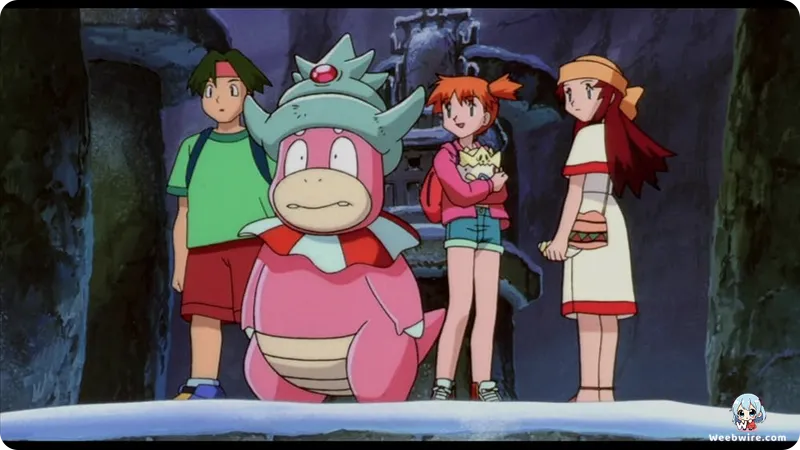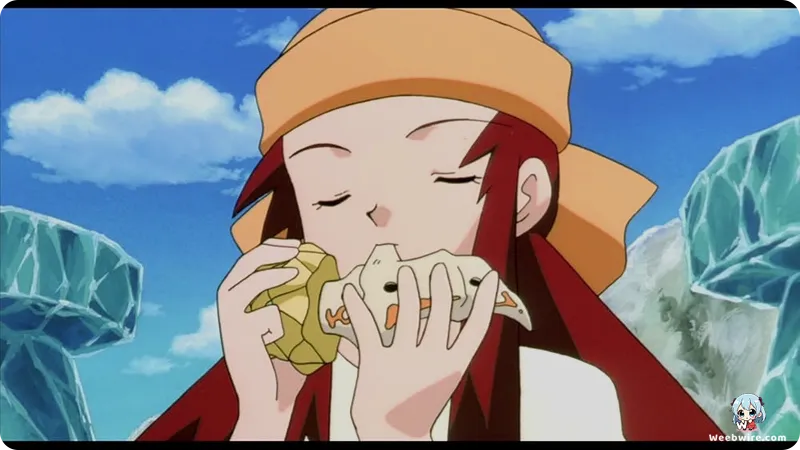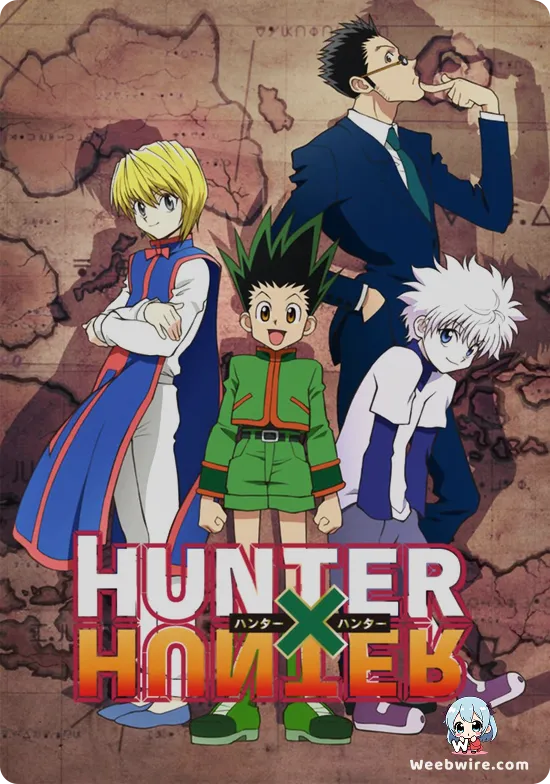Two Decades On: Unpacking the Enduring Legacy and Untold Lore of 'Pokémon the Movie 2000'

Released in Japan in 1999 and globally in 2000, Pokémon the Movie 2000, known in its home country as Pocket Monsters the Movie: Revelation Lugia, transcended its initial classification as a children's animated feature to become a cultural touchstone. This cinematic masterpiece, a pivotal entry in the vast Pokémon universe, is far more than a simple sequel; it is a rich tapestry woven with intricate lore, profound character development, and subtle thematic layers that continue to captivate audiences. Beyond the thrilling narrative of Ash Ketchum's quest to avert global catastrophe, the film is brimming with intriguing trivia and behind-the-scenes revelations that underscore its status as a cherished classic.
The Ancient Prophecy and Legendary Birds
At the heart of Pokémon the Movie 2000 lies a compelling ancient prophecy, foretelling a catastrophic imbalance triggered by the disruption of the three legendary birds: Articuno, Zapdos, and Moltres. This prophecy is masterfully integrated into the plot, imbuing the story with a sense of epic grandeur and predestined conflict, a significant departure from the more personal stakes of its predecessor. It serves as a foundational element of Pokémon lore, hinting at a deeper, almost mythological structure where legendary creatures maintain cosmic equilibrium, a concept that would echo throughout future franchise installments.
The Ethereal 'Lugia's Song'
A particularly enchanting aspect is the ethereal 'Lugia's Song.' Far from being mere background music, this melody is integral to the plot, possessing the power to pacify the enraged legendary birds and restore harmony. The tune's deep connection to the ancient prophecy suggests its lineage, perhaps even sung by 'Chosen Ones' of bygone eras. Filmmakers intentionally crafted this distinct melody to bestow Lugia with a unique, almost divine quality, cementing its role not just as a powerful Pokémon but as a symbol of hope and serenity. This musical motif resonated profoundly with viewers, becoming one of the movie's most memorable and beloved elements.
Slowking's Unexpected Wisdom
The unexpected sagacity of Slowking also stands out. Introduced in the second generation of games, Slowking made a significant debut in the film as a philosophical oracle on Shamouti Island, delivering cryptic yet crucial guidance to Ash and his companions. This portrayal firmly established Slowking's reputation as one of the most intelligent and astute Pokémon, a stark contrast to its pre-evolution, Slowpoke. Its calm demeanor amidst mounting chaos and its profound grasp of ancient prophecies injected a layer of intellectual depth into a narrative primarily aimed at a younger demographic, showcasing the franchise's capacity for complex characterization.

The Strategic English Title
The film's English title, Pokémon the Movie 2000, itself reflects a shrewd localization strategy. While it premiered in Japan in July 1999, its North American release was strategically aligned with the summer of 2000. This deliberate marketing decision capitalized on the turn of the millennium, giving the film a contemporary appeal and instant global recognition. Though the original Japanese title, Pocket Monsters the Movie: Revelation Lugia, directly referenced the plot, the Western title became an iconic symbol of the franchise's expansive global reach and profound cultural impact at the dawn of a new century.
The Unique Orange Islands Setting
The choice of the Orange Islands, specifically Shamouti Island, provided a refreshing backdrop, distinct from the familiar Kanto region. This unique setting facilitated the introduction of novel elements like the 'Chosen One' prophecy and the specific interactions among the legendary birds and Lugia, tailored to this exotic locale. The meticulously designed islands, with their distinctive elemental shrines and ancient ruins, significantly enhanced the film's mystical atmosphere and provided a rich canvas for the unfolding drama, underscoring the production team's attention to environmental detail.
Team Rocket's Unconventional Role
Even Team Rocket, typically the franchise's comedic antagonists, played an unusually helpful, albeit often clumsy, role. Their unexpected contributions, driven by self-preservation rather than altruism, highlighted the sheer severity of the global crisis. This subtle shift in their dynamic underscored the universal threat posed by Lawrence III's actions, compelling even villains to consider the greater good. Their presence offered much-needed comic relief while simultaneously emphasizing that the stakes were so high, even adversaries were compelled to temporarily set aside their differences.
An Enduring Environmental Message
The enduring message of Pokémon the Movie 2000 powerfully advocates for harmony in nature and humanity's critical responsibility to protect the environment. The film serves as a potent allegory for ecological balance, illustrating how the disruption of one element can cascade into widespread chaos. This theme, a consistent thread throughout the Pokémon franchise, is particularly pronounced here, transforming the film into not just an exciting adventure but also a subtle, educational piece on environmental stewardship. The resolution, achieved through understanding and cooperation, reinforces this vital message, leaving a lasting impression on its audience.
A Legacy of Cinematic Excellence
Under the meticulous direction of Kunihiko Yuyama and the compelling script by Takeshi Shudo, OLM's production marked a significant leap in animation quality and cinematic storytelling for the franchise. The detailed rendering of Lugia and the legendary birds, the dynamic action sequences, and the evocative background art contributed to a visually stunning experience. The film's ability to balance intense action with moments of quiet reflection and emotional resonance created a memorable cinematic journey that continues to captivate new generations of fans. Its legacy is a testament to its compelling narrative, iconic characters, and the timeless themes it explores, solidifying its irreplaceable place as a cornerstone of the Pokémon cinematic universe.
Credits
Pokémon the Movie 2000
Author
Satoshi Tajiri
Cover Art
Pokémon Production Team
Studio
OLM
Publisher
The Pokémon Company
Producers





